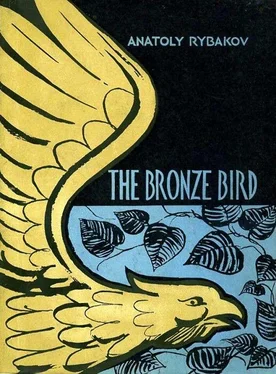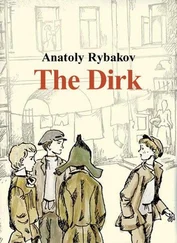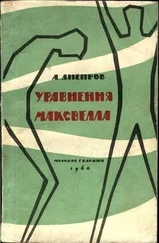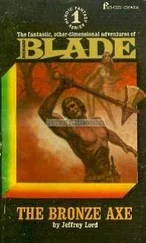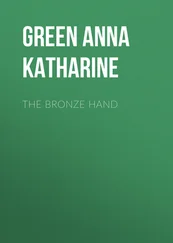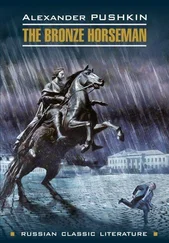Anatoly Rybakov - THE BRONZE BIRD
Здесь есть возможность читать онлайн «Anatoly Rybakov - THE BRONZE BIRD» весь текст электронной книги совершенно бесплатно (целиком полную версию без сокращений). В некоторых случаях можно слушать аудио, скачать через торрент в формате fb2 и присутствует краткое содержание. Город: Moscow, Год выпуска: 1956, Издательство: Foreign Languages Publishing House, Жанр: Детские приключения, Детектив, Исторические приключения, на английском языке. Описание произведения, (предисловие) а так же отзывы посетителей доступны на портале библиотеки ЛибКат.
- Название:THE BRONZE BIRD
- Автор:
- Издательство:Foreign Languages Publishing House
- Жанр:
- Год:1956
- Город:Moscow
- ISBN:нет данных
- Рейтинг книги:5 / 5. Голосов: 1
-
Избранное:Добавить в избранное
- Отзывы:
-
Ваша оценка:
- 100
- 1
- 2
- 3
- 4
- 5
THE BRONZE BIRD: краткое содержание, описание и аннотация
Предлагаем к чтению аннотацию, описание, краткое содержание или предисловие (зависит от того, что написал сам автор книги «THE BRONZE BIRD»). Если вы не нашли необходимую информацию о книге — напишите в комментариях, мы постараемся отыскать её.
THE BRONZE BIRD — читать онлайн бесплатно полную книгу (весь текст) целиком
Ниже представлен текст книги, разбитый по страницам. Система сохранения места последней прочитанной страницы, позволяет с удобством читать онлайн бесплатно книгу «THE BRONZE BIRD», без необходимости каждый раз заново искать на чём Вы остановились. Поставьте закладку, и сможете в любой момент перейти на страницу, на которой закончили чтение.
Интервал:
Закладка:
"He probably thought that Igor and Seva would be more comfortable at his place," Genka said. "A family home, you know."
"Serov might have thought that," Boris Sergeyevich replied, "but what he actually said was that the orphanages are full, which is not true."
"We couldn't very well refuse," Misha said. "Igor and Seva have to sleep somewhere."
"Yes, of course," Boris Sergeyevich agreed.
"That's my idea, too," Genka put in. "At Serov's they'll be fed and given beds. Those dumbclucks have all the luck! They ran away from the camp, made everybody anxious, got into a ridiculous muddle and came off scatheless. What they need is not a down mattress at Serov's but a day or two at the militia."
"How do you know Serov's got down mattresses?" Igor protested.
"I know. You can see by his face."
"What penetration!" Boris Sergeyevich laughed.
Serov lived on the outskirts and to get there they had to walk from almost one end of the town to the other.
"What a town!" Genka prattled. "Hasn't even got a tram. And look at the names of the streets: Streletskaya, Storozhevaya, Pushkarskaya, Soldatskaya (Streltsi, tsar's bodyguard instituted by Ivan the Terrible. Guards', Cannoneers', Soldiers'... respectively).This town must be very old. Must have been a fortress or something."
"It is an old town," Boris Sergeyevich confirmed, "and was founded long before Moscow."
"Did you come here about the labour commune?" Misha asked.
"Yes," Boris Sergeyevich frowned.
He said nothing further, but asked the boys to tell him all they knew about Kuzmin's murder. In reply to Misha's assurances that Ribalin was innocent, Boris Sergeyevich said:
"It's difficult for me to judge. I do not know the details. But the guilty party is the one who wanted Kuzmin to die."
They reached Serov's house.
It was a small, single-storey cottage with a small porch and three windows with white curtains. Over the fence, painted a bright red like the cottage and bristling along the top with long, sharp nails, could be seen the crowns of apple- and pear-trees. Near the door, a bell-pull dangled on a piece of wire.
"I'll wait while you finish your business there," Boris Sergeyevich said and slowly walked away down the road.
The boys climbed the steps to the porch. Misha tugged the bell-pull. The boys heard a metallic clatter, then footfalls.
"Who's there?" a woman's voice asked.
"We're from Comrade Serov," Misha replied.
A bolt rattled. The door opened. On the threshold stood a tall, handsome woman in a bright dressing-gown with green and yellow flowers printed on it.
"We were sent by Comrade Serov..." Misha began.
"I know," the woman said quickly, her thin lips curving haughtily. "Which are the boys?"
Misha indicated Igor and Seva.
"These."
The woman took a step back and opened the door wider.
"Come in."
Igor and Seva irresolutely entered the house. The woman banged the door shut after them.
A little put out by such a reception, Misha and Genka remained standing on the porch.
"I was hoping we'd get supper," Genka muttered, despondently.
"Supper! Fine hope!" Misha replied. "You'll have to wait a long time for that." He looked indignantly at the door: they had not even been given an opportunity to say good-bye to their friends.
But who did the woman remind him of? Her face looked very familiar. Perhaps she looked like one of their neighbours in Moscow?...
"I swear," Genka said, "if we don't get something to eat soon, I'll die of hunger."
Chapter 27
LIFE OF THE GENTRY
Genka did not die of hunger. An hour later saw the boys and Boris Sergeyevich walking out of a Food Commissariat canteen, where they had a satisfying meal of cabbage soup and rice pudding.
During the meal, Boris Sergeyevich told Misha and Genka that the labour commune idea was not progressing. Serov was against it and he had the backing of one of the local officials. His grounds were that the manor was a historical monument. They, Boris Sergeyevich said, had therefore to upset that version. The task was not impossible. He had already found out a thing or two in Moscow. His intention now was to go to the local Museum of Regional Studies where he hoped to find facts to support his case.
"Serov also spoke about the museum," Misha said. "May we go with you?"
"If you like."
"What an idea!" Genka said with a wry face. "What makes you want to go to that dump? What's so interesting about it? I bet they have mammoth tusks there. Every museum you go to, you find mammoth tusks. All want to prove that mammoths lived in their gubernia. I don't see that that's important even if they did."
"What if suddenly, besides mammoth tusks, there's something else and that something is really interesting?"
"No," Genka maintained, "you'll find nothing except mammoth tusks and, perhaps, a shrine with the relics of some saint, which is really nothing but trash and opium for the people."
"You don't have to go if you don't want to," Misha said. "You can wait for me at the railway station."
"Oh, no, rather than hang around the station I'll go to that museum," Genka announced.
Genka was right. The first things they saw when they entered the museum were the tusks of a mammoth. Curved, yellowish, they hung as an ornament in the museum's small vestibule, testifying to the fact that so far as mammoths went this gubernia did not lag behind the others.
A long suite of rooms extended from the vestibule along the circumference of the museum. Each room was a "section." Fauna, minerals, the vegetable kingdom, handicrafts, farming, history of the region. The history of the region, be it said, occupied a few rooms. On the door of one of them hung a plaque with the inscription: Life of 18th-Century Gentry. The furniture from the manor was in this room.
The display was of a drawing-room. Behind a rope was mahogany furniture: a table, a divan, armchairs and chairs upholstered with dark-red satin, a fire-place screen with Chinese birds drawn on it, a big harp with torn strings, two tall mirrors with candelabra on either side.
There also were three wardrobes. In one, bearing the inscription: Clothes of the Gentry, stood mannequins in ancient dress clothes with medals, Orders, stars and blue bands across the shoulders. In the second {Leisure of the Gentry}, were pipes, chibouks, playing cards and ivory billiard balls and chessmen. In the third {Recreation of the Gentry), there was, for some reason, a dinner set with huge pistols and other ancient weapons ranged around it.
Genka commented very deprecatingly on the life of the gentry.
"What did they want such long pipes for? How is one to smoke them? Try and carry one like that about with you! Or that caftan! Don't tell me that it's comfortable to wear. And the gowns... Rags! Who wants all this? Leisure of the gentry, recreation of the gentry -as though anyone cares? We haven't got any counts or landlords, so why make a show of all this?"
But Misha was not listening to Genka. His attention had been immediately caught by a bronze bird. It was a small replica of the one on the manor. It stood on a marble rest and gazed at the boys with round, irate eyes.
"Look, Boris Sergeyevich," Misha said, "exactly the same eagle as on the manor."
Boris Sergeyevich was examining some charts hanging on the wall. He turned round.
"This bird is on the family coat-of-arms," he said, "but I can't tell why it's been sculptured in bronze. Possibly just a whim." And he went back to the charts.
Misha suddenly felt sleepy. It was always like that! The moment you step into a museum you begin to feel drowsy. Even in the Tretyakov Picture Gallery. Why did museums make you sleepy? You always felt like running through the halls as quickly as possible and going out into the street again.
Читать дальшеИнтервал:
Закладка:
Похожие книги на «THE BRONZE BIRD»
Представляем Вашему вниманию похожие книги на «THE BRONZE BIRD» списком для выбора. Мы отобрали схожую по названию и смыслу литературу в надежде предоставить читателям больше вариантов отыскать новые, интересные, ещё непрочитанные произведения.
Обсуждение, отзывы о книге «THE BRONZE BIRD» и просто собственные мнения читателей. Оставьте ваши комментарии, напишите, что Вы думаете о произведении, его смысле или главных героях. Укажите что конкретно понравилось, а что нет, и почему Вы так считаете.
